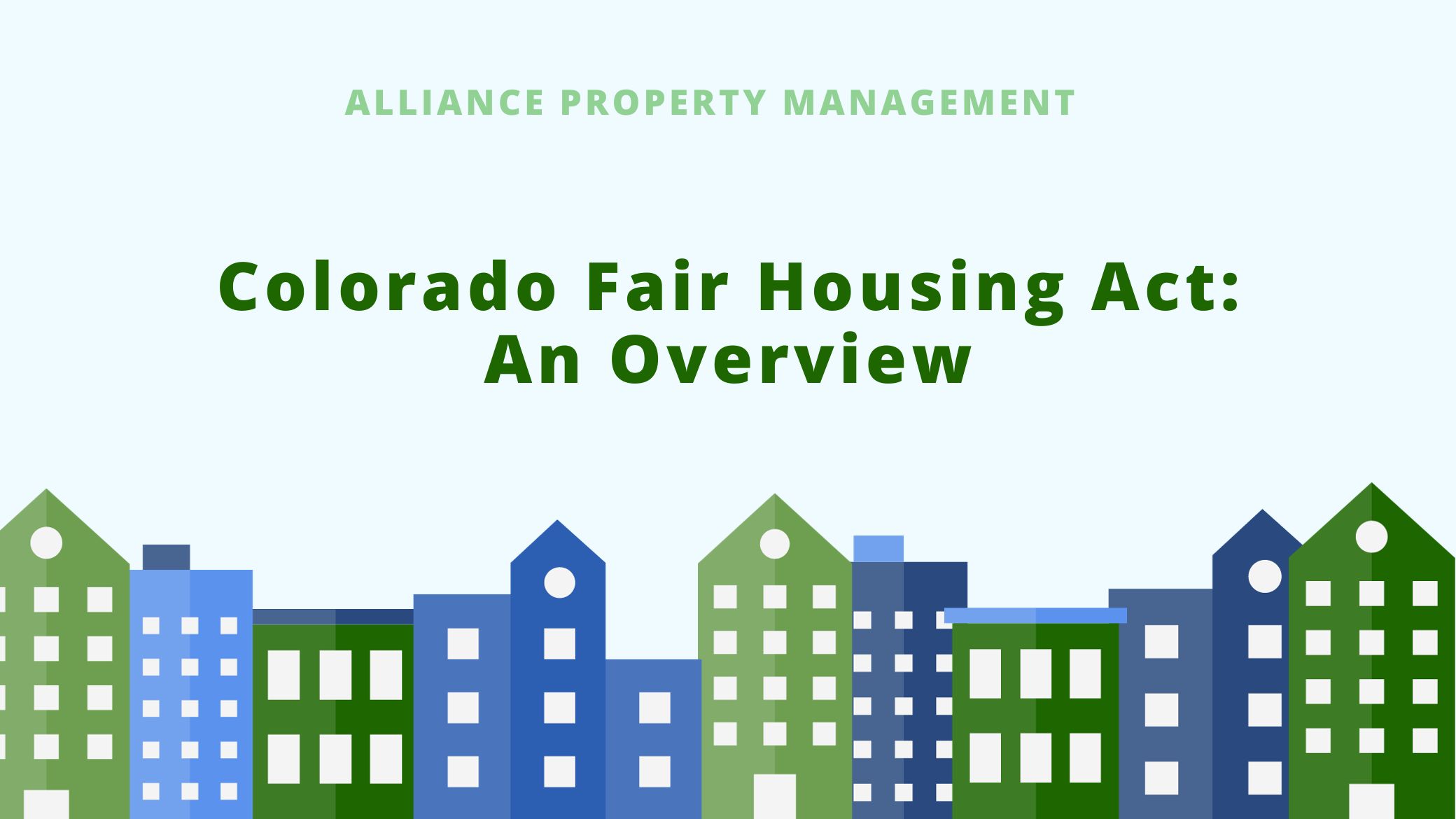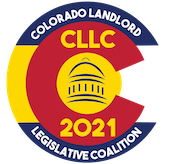Are you renting out a property in Colorado? If you are, then understanding Colorado landlord-tenant laws is key to running a successful rental investment.
Now, among the state laws you’ll want to familiarize yourself with is the state’s Fair Housing Act. The act applies to most landlords, including those renting out single-family homes, condos, apartments, and townhomes.
The following is everything you need to know when it comes to the Colorado Fair Housing Act.
What is the Federal Fair Housing Act?
Every American has a right to equal opportunity when it comes to housing. As a landlord, it’d be illegal to discriminate against a tenant on the basis of certain protected classes as per the Federal Fair Housing Act (FHA).
Specifically, the FHA prohibits landlords from discriminating against their tenants on the basis of 7 classes. That is, their sex, color, religion, race, familial status, disability, and nationality.
What Is the History of the Federal Fair Housing Act?
The Fair Housing Act (FHA) was established in 1968. Its purpose was to prohibit discrimination in all housing-related matters, including in the sale, rental, and financing of housing.
Then, the act only prohibited discrimination on the basis of four classes: race, religion, color, and nationality. Subsequent amendments in 1974 and 1988 added sex, disability, and familial status to the list of protections.

Some states have also added extra protections to the 7 classes existing at the federal level. Colorado law adds extra protections on the basis of sexual orientation, ancestry, marital status, gender identity, and ownership of a service animal.
Who Oversees Fair Housing In Colorado?
The government agency that enforces fair housing rules in Colorado is the state’s Department of Regulatory Agencies, Civil Rights Division (CCRD).
The following are examples of actions that the department may flag as discriminatory against renters.
Provided different tenants with different terms and conditions. For instance, charging higher rent or security deposits to tenants based on their characteristics.
Failing to make reasonable modifications and providing reasonable accommodations to renters with disabilities.
Retaliating against a renter who has exercised a legal right, such as justifiably breaking a lease.
Harassing a tenant because of their nationality.
Choosing a tenant based on race.
Choosing a tenant based on the religion they profess, such as “Ideal for a Christian Family.”
Denying a renter because they are pregnant or have small children.
Only charging certain tenants a security deposit.
What Exemptions to the Fair Housing Act Exist?
Some exemptions to the Fair Housing Act exist. They are as follows.
Religious organizations. These organizations are allowed to only provide accommodation to members professing the religion.
Owner-occupied housing. If you rent out part of the home you’re occupying, you are exempt from abiding by the Fair Housing Laws.
Housing designated as 55+. In these homes, landlords are allowed to only rent to tenants who are at least 55 years old.
Private Clubs. These are allowed to deny housing to individuals who aren’t members.

What Does the Fair Housing Act Say About People Living With Disabilities?
Under Colorado law, a disability can either be physical or mental. Examples include mental illness, alcoholism, mobility impairments, hearing impairments, and HIV/AIDS.
As a landlord, you have a responsibility to meet a disabled tenant’s request for reasonable accommodation and modification.
Examples of reasonable accommodations you can make include the following.
Allowing a tenant to keep an emotional support animal even when there is a “no pets” policy.
Waiving any pet fees for emotional support animals.
Allowing the tenant to transfer to the ground floor unit for convenience.
An example of a reasonable modification you can make includes adding a grab bar to the bathroom.
What Can Colorado Landlords Do to Provide Fair Housing?
Advertise properly. Don’t use any discriminatory language in your rental ads. Avoid statements such as “No Kids Allowed”, “Not Ideal for Disabled People”, “English Speakers Only”, or “Perfect for a Single Professional”.
Screen tenants vigorously yet fairly. Conduct a consistent and fair screening process for all tenants. Avoid asking prospective tenants questions that touch on a protected class. For instance: How many kids do you have? Are you disabled? Are you a Christian?

Enforce all policies equally and fairly. If charging a late fee, do it for all tenants. If requiring a security deposit or other fees, do it for all tenants. If responding to a maintenance concern, do it consistently for all tenants.
Bottom Line
Now you have familiarized yourself with the Colorado Fair Housing Laws. You may also want to stay abreast with other state laws, such as the state’s security deposit laws and habitability laws. This will ensure you understand and discharge your responsibilities properly.
Should you want expert help in managing your rental property, don’t hesitate to contact Alliance Property Management Inc. Get in touch to learn more!
Disclaimer: Please note that the information provided in this blog is intended for general guidance and should not be considered as a replacement for professional legal advice. It is important to be aware that laws pertaining to property management may change, rendering this information outdated by the time you read it.
Alliance Property Management Inc. is not an attorney and does not provide legal advice. Contact us today to learn more about how Alliance PM can help you avoid evictions










